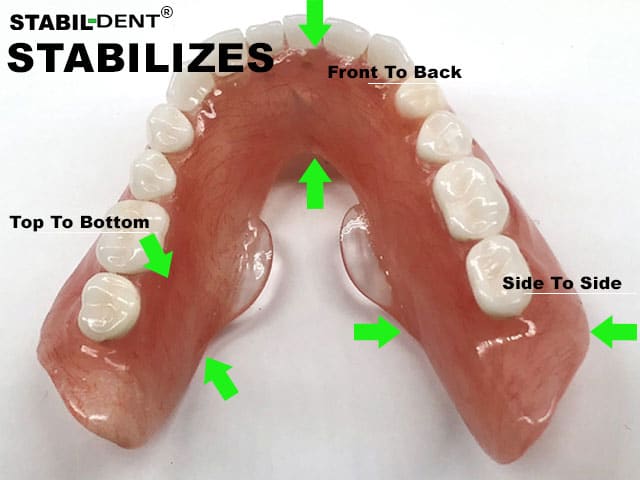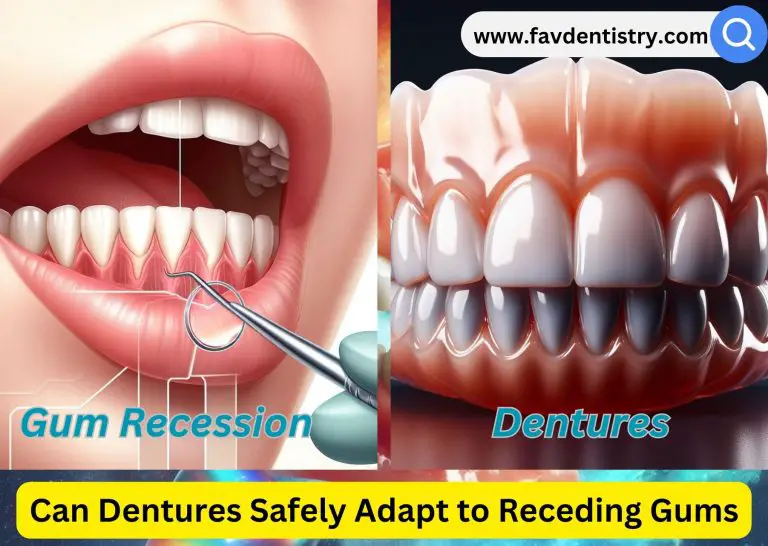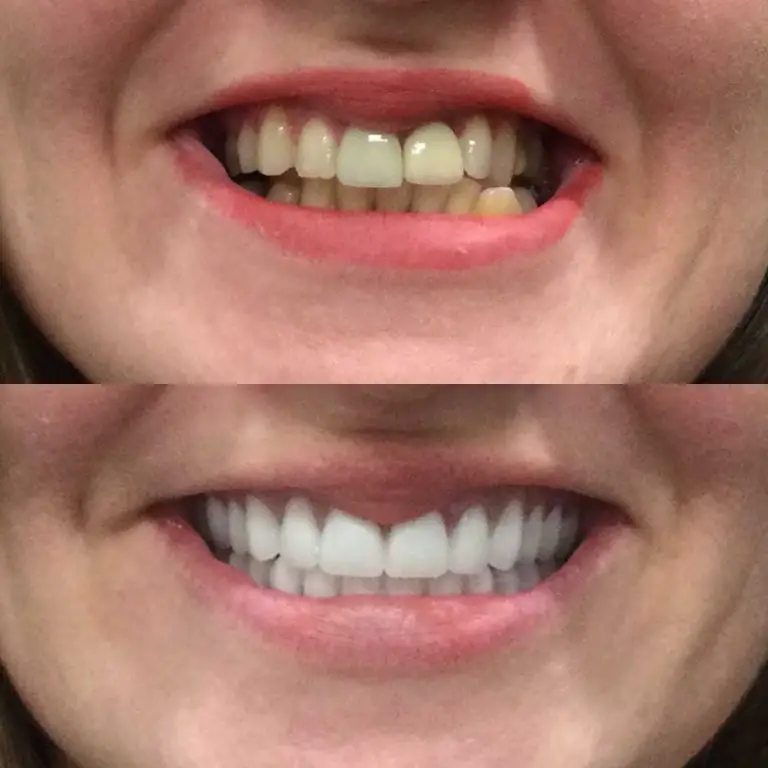Last Updated on 3 weeks by DR. ALBIN SIPES
Denture pads are effective for soothing sore spots on your gums caused by dentures. Are you experiencing discomfort and sore spots on your gums from wearing dentures?
If so, denture pads could be the solution you’re looking for. Denture pads are specially designed to provide relief and alleviate the pain caused by denture-related sore spots. They create a cushioning effect on your gums, reducing friction between the dentures and the sensitive areas.
By using denture pads, you can find comfort and prevent further irritation. In this article, we will delve into the benefits and proper usage of denture pads, so you can regain comfort and confidence while wearing dentures.
Understanding Denture Discomfort
Denture discomfort can be a frustrating experience for many individuals. Whether you are a new denture wearer or have been using dentures for many years, sore spots and discomfort can significantly impact your quality of life. In this section, we will explore the causes of denture discomfort, common sore spots experienced by denture wearers, and the impact that denture discomfort can have on your overall well-being.
Causes Of Denture Discomfort:
- Poorly fitting dentures: Ill-fitting dentures can lead to sore spots and discomfort. When dentures do not fit properly, they can rub against the gums, causing irritation and soreness.
- Gum irritation: Even with well-fitting dentures, the constant pressure and friction against the gums can lead to irritation and discomfort.
- Allergic reactions: Some individuals may develop allergic reactions to the materials used in their dentures, such as acrylic or metal. This can result in discomfort, inflammation, and sore spots.
- Changes in oral structure: Over time, the jawbone and gums may change in shape and size, which can cause dentures to become loose and uncomfortable.
Common Sore Spots Experienced By Denture Wearers:
- Gum line: The area where the denture base rests against the gums is a common site for sore spots. The pressure and friction from the dentures can cause irritation and discomfort.
- Palate: For those with upper dentures, the palate can sometimes become sore due to the constant contact with the denture. This can make eating and speaking uncomfortable.
- Corners of the mouth: Lower dentures sometimes rub against the corners of the mouth, leading to sore spots and even inflammation known as angular cheilitis.
Experiencing denture discomfort can have a significant impact on your everyday life. The discomfort and pain can make it difficult to eat, speak, and even smile confidently. It can also lead to feelings of self-consciousness and embarrassment, affecting your overall quality of life.
Seeking solutions and understanding the causes of denture discomfort will enable you to find relief and enjoy the benefits of a comfortable denture fit.
Introducing Denture Pads For Instant Relief
If you’re one of the millions of people who wear dentures, you know how uncomfortable and painful sore spots can be. These pesky irritations can make it difficult to eat, speak, and even smile with confidence. But fear not! Denture pads are here to save the day and provide you with instant relief from those nagging sore spots.
Let’s dive in and explore what denture pads are, how they work, and the benefits of using them.
What Are Denture Pads?
Denture pads, also known as denture cushions, are soft, pliable materials specifically designed to provide comfort and alleviate discomfort caused by dentures. They are typically made from medical-grade silicone or polymer materials that mimic the natural soft tissues in your mouth.
Using denture pads is simple. These thin, flexible pads can be easily applied to the surface of your dentures to create a cushioning effect. They adhere securely to the denture surface, ensuring a snug fit and enhanced comfort throughout the day.
How Denture Pads Work
Denture pads work by creating a protective barrier between your dentures and the sensitive tissues in your mouth. They help distribute pressure evenly, reducing friction and preventing sore spots from developing or worsening.
When you apply denture pads, they conform to the contours of your mouth, providing a custom fit. The cushioning effect of the pads reduces the impact on your gum tissues, allowing you to comfortably wear your dentures for longer periods without experiencing discomfort.
Benefits Of Using Denture Pads For Sore Spots
Using denture pads can offer a range of benefits for those struggling with sore spots caused by dentures. Here are some key advantages:
- Instant relief: Denture pads provide immediate relief by eliminating direct contact between your dentures and sore spots, easing discomfort and allowing you to go about your day without interruptions.
- Enhanced comfort: The soft and pliable nature of denture pads enhances the overall comfort of wearing dentures. You’ll be able to enjoy your favorite foods, speak clearly, and engage confidently in social situations.
- Improved fit: Denture pads help fill any gaps between your dentures and the contours of your mouth, promoting a more secure and stable fit. This can prevent movement of the dentures, reducing the risk of further irritation.
- Easy to use and replace: Denture pads are available in pre-cut shapes that fit most denture sizes. They are easy to apply and remove, allowing for hassle-free adjustments as needed.
With the instant relief and numerous benefits they offer, denture pads are a game-changer for anyone seeking relief from sore spots caused by dentures. Say goodbye to discomfort and hello to a more enjoyable denture-wearing experience.
Choosing The Right Denture Pads
Denture Pads For Sore Spots
Are you tired of dealing with discomfort and sore spots caused by your dentures? Denture pads can be a game-changer, providing the much-needed relief and comfort you desire. However, with so many options available on the market, it’s essential to choose the right denture pads for your specific needs.
Let’s explore the key factors to consider when selecting denture pads, the different types available, and some helpful tips for finding the best ones.
Factors To Consider When Selecting Denture Pads:
- Comfort: Look for denture pads that provide a cushioning effect and distribute pressure evenly to alleviate sore spots and discomfort.
- Material: Opt for denture pads made from soft, flexible materials that are gentle on your gums and do not cause irritations.
- Adhesive strength: Consider the adhesive strength of the denture pads to ensure they stay in place throughout the day.
- Easy to clean: Check if the denture pads are easy to clean and maintain, ensuring good oral hygiene.
Different Types Of Denture Pads Available:
- Adhesive strips: These are thin strips with adhesive on one side, offering a secure grip for your dentures.
- Cushioning pads: Made from soft materials, these pads provide extra cushioning and comfort for sore spots.
- Soft liners: These liners are moldable and can be customized to fit the contours of your mouth, offering enhanced comfort.
- Gel pads: Gel pads provide a soothing sensation and help reduce friction between your dentures and gums.
Tips For Finding The Best Denture Pads For Your Needs:
- Consult your dentist: Seek advice from your dentist or prosthodontist, who can recommend the most suitable denture pads based on your individual requirements.
- Read customer reviews: Look for feedback and reviews from other denture wearers to get an idea of the effectiveness and comfort level of different denture pads.
- Experiment with different brands: Try out different brands of denture pads to find the one that fits your mouth shape and offers the desired level of comfort.
- Consider your budget: Denture pads are available at various price points. Consider your budget while choosing the right option for you.
- Check for allergens: If you have any known allergies, ensure that the denture pads you select are free from the materials that may cause a reaction.
Now that you have a better understanding of the factors to consider, the types available, and some tips for finding the best denture pads, you can make an informed decision. Say goodbye to sore spots and discomfort, and embrace the comfort and confidence that come with the right denture pads.
How To Use Denture Pads Effectively
Step-By-Step Guide To Applying Denture Pads
Using denture pads can be an effective solution for dealing with sore spots caused by ill-fitting dentures. To ensure you are using denture pads correctly, follow these simple steps:
- Clean the denture: Before applying the denture pad, make sure your denture is clean and free from any food debris or adhesive residue.
- Cut the pad to size: Denture pads typically come in large sizes, so you may need to trim them to fit properly. Use a pair of scissors to cut the pad into the desired shape and size that covers the affected area.
- Apply the adhesive: Most denture pads come with adhesive already applied. If yours does not, apply a small amount of denture adhesive to the surface of the pad.
- Position the pad: Carefully place the pad onto the sore spot on your denture. Make sure it adheres firmly and covers the entire area that is causing discomfort.
- Press and hold: Gently press down on the pad, applying even pressure to ensure it sticks securely to the denture surface.
Proper Care And Maintenance Of Denture Pads
To keep your denture pads in good condition and prolong their lifespan, follow these care and maintenance tips:
- Clean after each use: After removing your denture, gently clean the pad with mild soap and water. This will help remove any debris or bacteria that may have accumulated.
- Air dry: Allow the denture pad to air dry completely before storing it. Avoid using a towel or tissue to dry it, as this can leave behind fibers or lint.
- Store properly: Store your denture pads in a clean, dry container or bag. Avoid exposure to moisture or extreme temperatures, as this can degrade the adhesive and affect the pad’s effectiveness.
- Replace when necessary: Denture pads are not meant to last forever. Over time, the adhesive may weaken, and the pad may lose its cushioning properties. If you notice any signs of wear or if the pad no longer adheres properly, it’s time to replace it.
Tips For Maximizing The Lifespan Of Denture Pads
To ensure you get the most out of your denture pads, consider the following tips:
- Avoid excessive moisture: Moisture can compromise the adhesive on denture pads. Try to minimize the contact of the pad with water or saliva by using it sparingly and removing it when not needed.
- Use with caution: Denture pads are intended for temporary use and should not be used as a permanent solution for ill-fitting dentures. If you continue to experience discomfort or sore spots, consult your dentist for a professional assessment.
- Monitor hygiene: Maintain good oral hygiene practices to prevent any bacterial buildup on your denture pads. Regularly clean your dentures and mouth to minimize the risk of infections or irritations.
- Seek professional help: If you are experiencing persistent sore spots or discomfort with your dentures, it’s important to consult with your dentist. They can provide professional advice and make necessary adjustments to ensure a comfortable fit.
By following these steps and tips, you can effectively use denture pads to alleviate sore spots and enhance your denture-wearing experience. Remember to care for and maintain your denture pads properly to maximize their lifespan and ensure optimal comfort.
Alternative Solutions For Denture Discomfort
Denture pads are a popular solution for dealing with sore spots caused by dentures. These soft cushions can be placed in the denture to alleviate discomfort and provide relief. However, there are also alternative solutions available for those seeking additional options to address denture-related discomfort.
In this section, we will explore two alternatives to denture pads: denture adhesives and creams, and soft reliners for dentures.
Denture Adhesives And Creams:
- Denture adhesives are products that come in the form of a paste, powder, or strips. They are applied to the denture to create a stronger bond between the denture and gums, ensuring a secure fit.
- These adhesives can help prevent dentures from slipping or moving while eating, speaking, or smiling, reducing discomfort and sore spots.
- Denture creams are also available and work similarly to adhesives. They provide a cushioning effect, promoting a more comfortable fit and reducing irritation.
Soft Reliners For Dentures:
- Soft reliners are a type of cushioning material that can be applied directly to the denture. They create a cushioning layer between the denture and gums, reducing pressure points and sore spots.
- Soft reliners are made of a soft, flexible material that conforms to the shape of the gums, providing a customized and comfortable fit.
- These reliners can help improve the fit of ill-fitting dentures, making them more comfortable to wear and reducing the likelihood of sore spots.
While denture pads are a popular choice, denture adhesives and creams, as well as soft reliners, offer alternative solutions for individuals experiencing denture discomfort. These options provide added comfort and relief for sore spots, allowing individuals to enjoy their day-to-day activities without discomfort.
So, if denture pads are not your ideal solution, consider exploring these alternatives for a more comfortable denture-wearing experience.
Overcoming Challenges With Denture Pads
Are you tired of dealing with sore spots caused by your dentures? Denture pads can be a great solution to overcome these challenges and improve your comfort level. In this section, we will discuss potential issues that can arise with denture pads and provide troubleshooting tips for common problems.
We will also highlight when it may be necessary to seek professional assistance for denture discomfort. So, let’s delve into these important points!
Potential Issues With Denture Pads
- Denture pads may not fit properly, leading to discomfort and sore spots.
- If not attached securely, the pads may move around, causing irritation and gum inflammation.
- Some people may experience an allergic reaction to the materials used in denture pads.
- Over time, the adhesive properties of the pads may weaken, resulting in less effective cushioning.
Troubleshooting Tips For Common Problems
- Ensure proper fitting of the denture pads by following the manufacturer’s instructions and seeking professional assistance if needed.
- Clean your dentures and the pads regularly to prevent bacterial growth and maintain hygiene.
- If the pads are moving around, try using a denture adhesive to secure them in place.
- If you suspect an allergic reaction, discontinue use immediately and consult with a healthcare professional.
- If the adhesive properties of the pads are decreasing, consider replacing them with new ones.
When To Seek Professional Assistance For Denture Discomfort
- If you are experiencing persistent sore spots or pain, it is advisable to consult your dentist.
- Your dentist will assess your dentures and the condition of your mouth to identify any underlying issues causing discomfort.
- Professional adjustments, such as realignment or modification of the dentures, may be necessary to alleviate the discomfort.
- Seeking professional assistance ensures that any potential problems are addressed promptly and effectively, enhancing your overall experience with denture pads.
By being aware of potential issues, troubleshooting common problems, and knowing when to seek professional assistance, you can overcome challenges with denture pads and enjoy a more comfortable fit. Remember to consult your dentist for personalized advice to address any specific concerns you may have.
So, say goodbye to sore spots and discomfort, and embrace the improved comfort that denture pads can provide!
Testimonials And Success Stories
Are you struggling with sore spots caused by your dentures? You’re not alone. Many denture wearers experience discomfort and irritation, especially in the early stages of wearing dentures. Fortunately, there is a solution that can provide you with the relief you’re looking for – denture pads.
In this section, we will delve into real-life experiences and success stories of denture wearers who have found comfort and relief with denture pads. Additionally, we’ll hear insights from dental professionals on the effectiveness of these pads.
Real-Life Experiences Of Denture Wearers Using Pads For Sore Spots:
- Denture pads have been a game-changer for many people struggling with sore spots caused by their dentures. Here are some of their personal stories:
- One individual shared how they had been experiencing constant irritation and discomfort from their dentures, making it difficult for them to eat and speak confidently. After trying various remedies, they decided to give denture pads a shot. The pads instantly provided cushioning and created a barrier between their gums and dentures, alleviating the sore spots and allowing them to go about their day pain-free.
- Another denture wearer mentioned how they had been dissatisfied with the fit of their dentures, leading to persistent soreness in certain spots. They tried adjusting their dentures multiple times to no avail. As a last attempt, they decided to try denture pads. To their surprise, the pads provided instant relief and gave them the confidence to wear their dentures all day long without any discomfort.
Personal Stories Of Finding Relief With Denture Pads:
- The effectiveness of denture pads can be seen through the personal stories of individuals who have found relief in using them. Here are a few instances:
- A denture wearer who had been struggling with painful pressure points due to ill-fitting dentures shared how denture pads were a lifesaver. They were skeptical at first but decided to give them a try. The pads not only eased the sore spots but also improved the overall fit of their dentures, allowing them to enjoy a higher level of comfort.
- Another individual who had been dealing with sore spots for months found solace in denture pads. They had tried various home remedies, but none provided the same level of relief as denture pads did. With the pads in place, they found that they could finally eat, drink, and speak without any pain or discomfort.
Insights From Dental Professionals On The Effectiveness Of Denture Pads:
- Dental professionals understand the challenges that denture wearers face and often recommend denture pads as a solution for sore spots. Here’s what they have to say:
- Denture pads act as a cushioning layer between the dentures and the gums, redistributing pressure and reducing friction, which can significantly reduce the occurrence of sore spots.
- The flexible nature of denture pads allows for a custom fit, accommodating the unique shape and contours of the individual’s mouth. This precise fit ensures that sore spots are minimized, promoting a more comfortable denture-wearing experience.
- Dental professionals emphasize that denture pads should be used as a temporary solution while more permanent adjustments or relines are performed. However, they acknowledge that denture pads are a valuable tool in managing sore spots and providing immediate relief.
Denture pads have proven to be a game-changer for many denture wearers, providing relief from sore spots and allowing them to enjoy their day-to-day activities without discomfort. Whether it’s through personal stories or insights from dental professionals, it’s evident that denture pads are an effective solution worth considering.
So, if you’re tired of dealing with sore spots caused by your dentures, give denture pads a try and experience the difference for yourself.
Frequently Asked Questions About Denture Pads
Denture pads can be a game-changer for those who experience sore spots from wearing dentures. If you’re considering using denture pads or have had some questions about them, you’ve come to the right place. In this section, we’ll address some frequently asked questions, debunk common concerns and misconceptions, and provide expert recommendations for incorporating denture pads into your daily routine.
Answers To Common Questions About Denture Pads:
- What are denture pads? Denture pads are soft, cushion-like pads that adhere to the surface of your dentures. They provide extra padding and can alleviate sore spots caused by ill-fitting dentures.
- How do denture pads work? Denture pads create a comfortable barrier between your gums and the denture, reducing friction and pressure that can lead to sore spots. They are designed to provide a custom fit and stay securely in place throughout the day.
- Are denture pads easy to use? Yes, denture pads are user-friendly and easy to apply. Simply moisten the pad with water, place it onto the denture surface, and press down gently to ensure it adheres properly. It’s important to follow the manufacturer’s instructions for the best results.
- Can denture pads be customized? Yes, many denture pads are easily customizable. You can trim them to fit the unique shape of your dentures, allowing for a more personalized and comfortable fit.
- How long do denture pads last? The lifespan of denture pads can vary depending on factors such as frequency of use and oral hygiene practices. On average, they tend to last for several weeks before needing to be replaced.
Addressing Concerns And Misconceptions About Using Denture Pads:
- Will denture pads affect my ability to eat and speak? No, denture pads are designed to enhance your denture-wearing experience. They should not interfere with your ability to eat or speak properly when applied correctly. In fact, they can help improve comfort and stability, allowing you to enjoy your favorite foods and engage in conversations with confidence.
- Do denture pads contain harmful chemicals? Denture pads are typically made from non-toxic materials and are free from harmful chemicals. However, it’s always wise to check the product label or consult with your dentist if you have specific allergies or sensitivities.
Expert Recommendations For Incorporating Denture Pads Into Daily Routines:
- Clean your dentures thoroughly before applying denture pads. This ensures proper adhesion and promotes good oral hygiene.
- Use denture pads in conjunction with appropriate denture adhesives for added support and stability.
- If you experience persistent sore spots or discomfort, consult your dentist for an evaluation. Denture pads can be a temporary solution, but it’s essential to address underlying fitting issues for long-term comfort.
Incorporating denture pads into your daily routine can provide much-needed relief from sore spots and enhance your denture-wearing experience. If you have further questions or concerns, don’t hesitate to reach out to your dentist or denture care professional for guidance.
Frequently Asked Questions On Denture Pads For Sore Spots
Can Denture Pads Help With Sore Spots?
Denture pads can provide relief by cushioning the sore spots and reducing friction in the mouth.
How Do Denture Pads Work?
Denture pads create a protective barrier between the gums and the dentures, minimizing discomfort and allowing for a more comfortable fit.
Are Denture Pads Easy To Use?
Yes, denture pads are designed to be user-friendly and can easily be placed on the dentures for immediate relief.
Conclusion
Denture pads for sore spots can provide much-needed relief and comfort for those who wear dentures. These pads serve as a cushion between the dentures and the sensitive areas of the gums, preventing friction and irritation. With their easy-to-use design, denture pads offer a convenient solution for addressing sore spots without the need for messy adhesives.
By providing a protective barrier, they allow denture wearers to continue enjoying their favorite foods and activities without discomfort. Whether you’re a long-time denture wearer or new to the world of dentures, it’s important to prioritize your comfort and oral health.
So, consider investing in denture pads to alleviate sore spots and maintain a pain-free denture-wearing experience. Stay comfortable, confident, and smiling with the help of denture pads.






